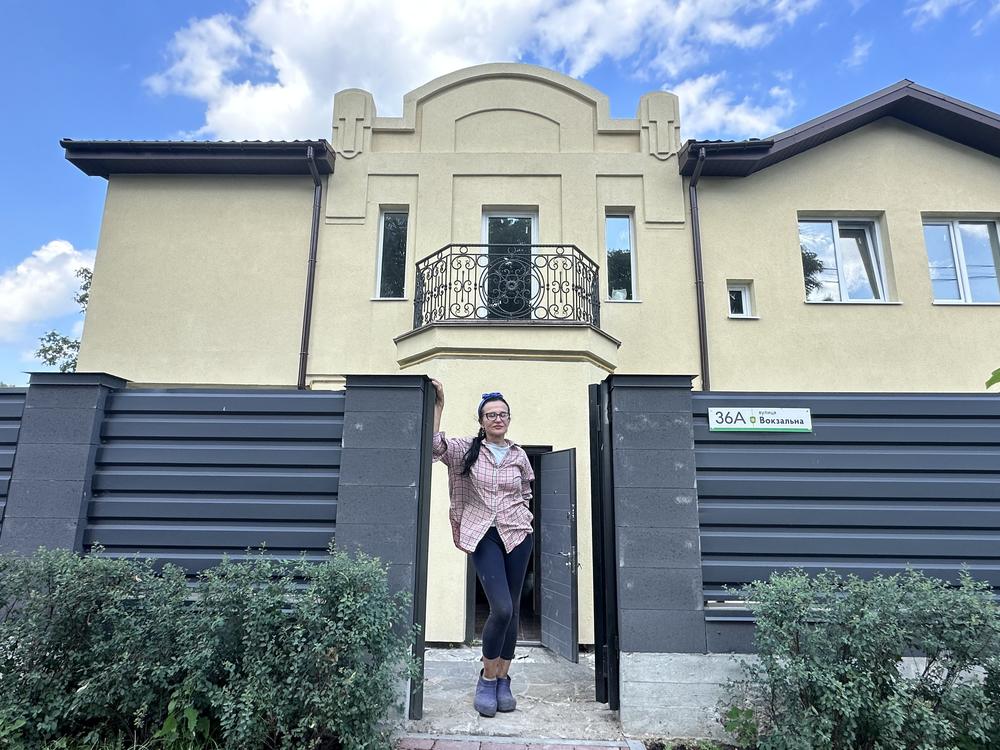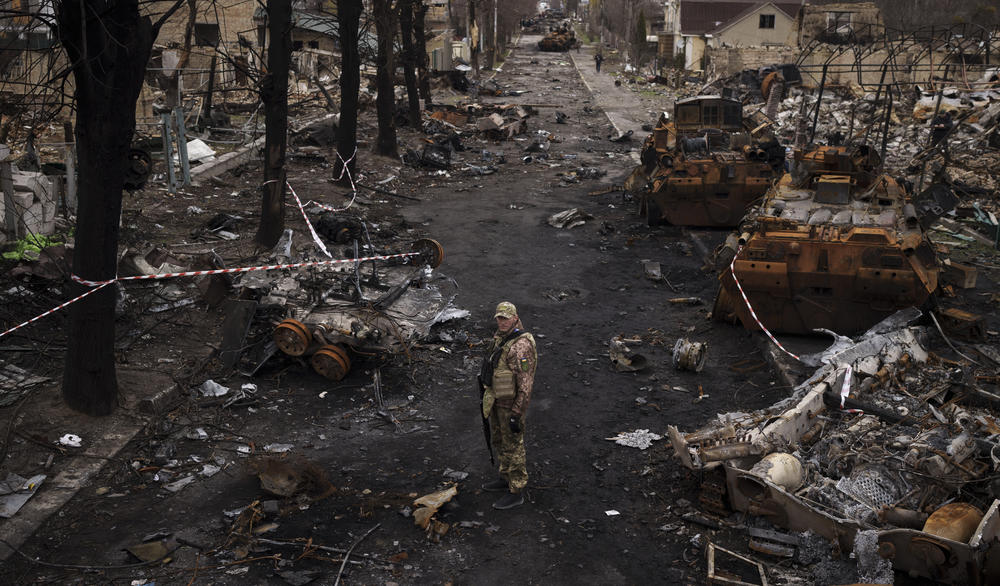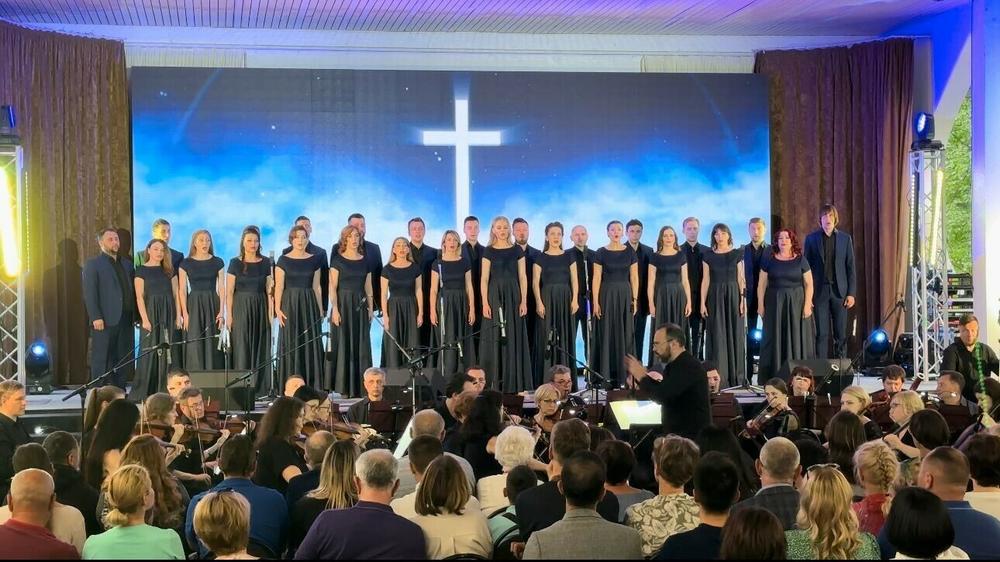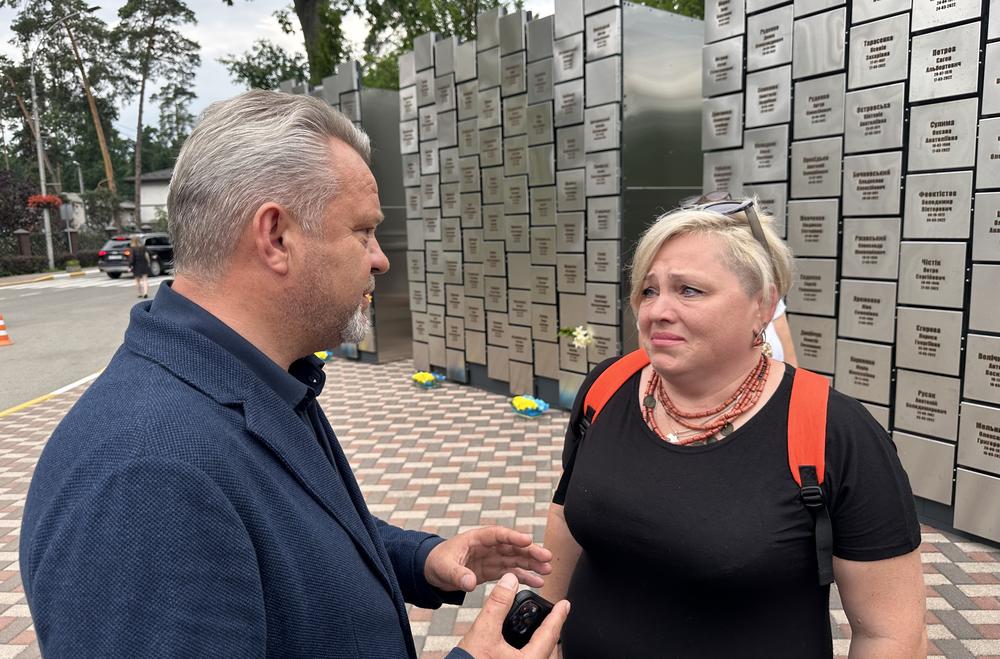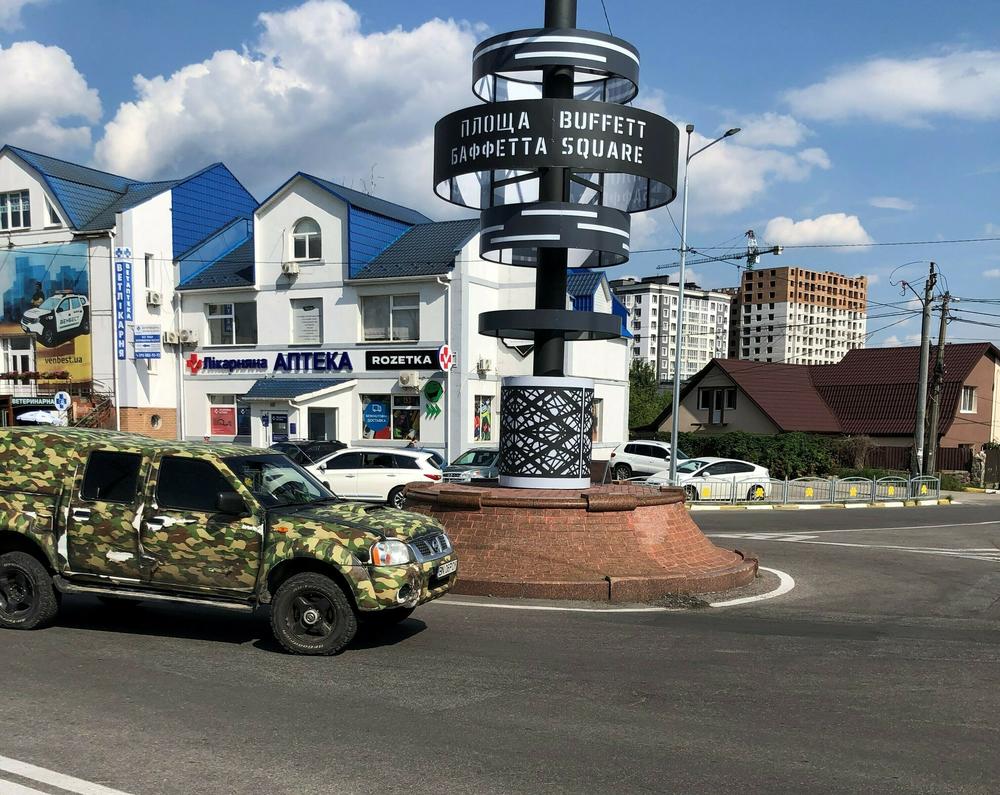Section Branding
Header Content
Ravaged by Russian troops, Bucha rises from the ashes
Primary Content
BUCHA, Ukraine — To understand how much the Kyiv suburb of Bucha has recovered in the past year, take a look at the photos above and below.
Above is Olha Kornych, 58, who was cleaning up at her newly rebuilt, tan, two-story stucco home.
"The rebuilding started in March this year, and they finished it recently. They're still planting trees," said Kornych. The inside is still a bit messy, but she hopes to move back in soon.
Below is the photo of her street, Vokzalna Street, from early April of last year, just after the Russian forces had been driven out of Bucha, which is a few miles northwest of Kyiv.
Kornych recalled the terrifying day in February last year when Russian tanks came rumbling down her narrow street.
"Around 7:30 in the morning, the convoy of tanks passed by. We drank tea and coffee and watched TV. We didn't panic at first," she said. "Then we heard the machine guns. We barely managed to make it to the basement."
She was one of nine family members and neighbors who took refuge in her basement as a Russian tank took up a position in her yard, and many others filled the street.
"We were stuck in the cellar until the end of the battle. It was horrible," said Kornych. She said they were able to escape at the end of the day, but the tanks remained for weeks.
New homes, a concert and a memorial
The rebuilt homes in Bucha are just one example of how the town is coming back to life.
On a recent Saturday evening, residents packed into an open-air theater in Bucha's main park for an energetic concert.
Families strolled the lush, manicured grounds on a gentle summer night that looked like it could be almost any small town in Europe.
"Rebuilding at the fastest pace possible is very important. This provides the psychological support our citizens need, so they can see the city being renewed," Bucha's mayor, Anatolii Fedoruk, told NPR.
He said more than 3,000 homes and structures were damaged or destroyed during the Russian occupation that lasted for nearly the entire month of March 2022. About half are now in some stage of reconstruction, and the mayor hoped that figure will reach 70% by the end of the year.
Yet even this day was filled with somber moments.
The mayor dedicated a newly built Wall of Honor, with silver plaques featuring the names of 501 civilians killed during Russia's occupation in March of last year.
Dozens of additional plaques are blank, reflecting the 80 bodies still not positively identified.
"We demand justice. We demand that even after we achieve victory, the Russians must be punished for what they did here," Fedoruk said.
Reminders of destruction left by the Russians
A short distance away, the scars of the Russian invasion remain. Mangled, rusting vehicles. Homes and shops pierced by bullets and shrapnel.
Much of the money to rebuild homes in Bucha came from the Howard G. Buffett Foundation, based in Decatur, Ill. The foundation operates mostly in poor countries in Africa and Latin America. Buffett said he came to Ukraine because the need is so great.
"These people did nothing wrong. They did not deserve this. They did not ask for this. It should not have happened to them. And they've lost everything," he said.
Buffett has made eight trips to Ukraine since last year and his foundation has committed $450 million to multiple projects around the country.
He spoke to NPR via Zoom from the southern Ukrainian city of Kherson. He was wearing a flak jacket because Kherson was yet again under a shelling attack.
"It's a war on civilians. It's a war on global food security. It's a war on freedom. It's a war on democracy. And it's a war on sovereignty," he said. "This is a war that everybody should care about."
A roundabout in Bucha has been renamed Buffett Square, marked with a large sign. This is a place he's more famous than his father, billionaire investor Warren Buffett.
Howard Buffett gives credit to the local groups that have done so much to rebuild Bucha, and recalled a recent visit to the rapidly renovating town.
"It's just amazing to see it. I mean, it's just it's an incredible change. It has to give people hope," Buffett said.
Bucha's revival is happening more rapidly than in other ravaged places. The war still rages in the south and east. Even in relatively stable areas, Ukraine lacks the resources to rebuild.
The cost will be astronomical. Estimates put the nationwide reconstruction figure at somewhere between $400 billion to more than $1 trillion.
There's talk of seizing frozen Russian assets abroad — around $350 billion — and giving that money to Ukraine, though so far it's just one idea under discussion.
Meanwhile, back at the concert, as the music comes to a close, the audience rises to a standing ovation to express its appreciation — and to imagine better days ahead.
Greg Myre is an NPR national security correspondent. Follow him @gregmyre1.
Copyright 2023 NPR. To see more, visit https://www.npr.org.
